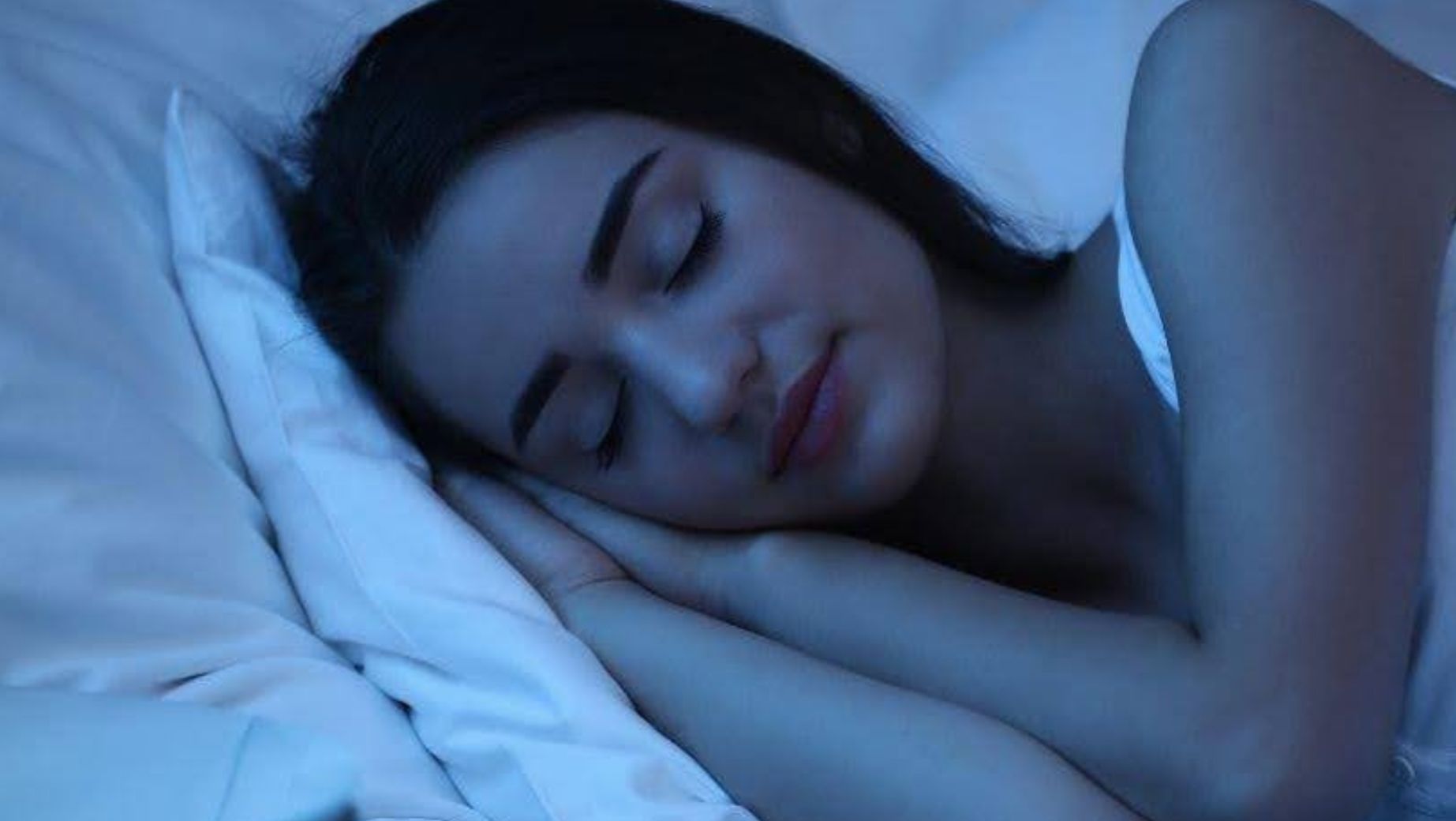Sleep may seem like a basic biological need, but during addiction recovery, it becomes your secret weapon. Sleep and addiction recovery are deeply intertwined. As your body and brain work to heal from substance abuse, sleep plays a crucial role in restoring physical and mental health, improving emotional stability, and reducing the risk of relapse.
According to Dr. Catherine Carney, a leading voice in behavioral health and recovery science, “Rest is your secret to resilience. Without enough sleep, the body cannot fully recover or regulate itself emotionally.” For anyone on a recovery journey, understanding and prioritizing sleep is essential for long-term success.
The Power of Sleep: A Key to Long-Term Recovery
The power of sleep extends beyond rest; it helps the brain repair damaged neural pathways and supports the immune system. When healing from drug abuse or addictive behavior, the body needs restful sleep to detoxify, restore hormonal balance, and support emotional regulation.
In addiction treatment, patients with sleep disturbances or sleep deprivation face greater difficulty in managing emotions and impulses. Quality rest contributes to:
- Improved emotional regulation
- Greater impulse control
- Stronger immune function
- Mental clarity for making better decisions
- Better engagement in therapy
Without these, recovery becomes harder to sustain. It’s not just about feeling well-rested; sleep impacts your brain’s chemistry and overall well-being.
How Sleep Affects the Brain: Cognitive Function and Emotional Balance
Sleep plays a significant role in cognitive function, impacting attention, memory, problem-solving, and decision-making. Poor sleep can lead to foggy thinking, weakened impulse control, and distorted perception, which can compromise recovery.
Effects of Poor Sleep
Sleep deprivation doesn’t just make you tired, it significantly affects your emotional and psychological well-being, especially during addiction recovery. When someone in recovery is not getting enough sleep, the consequences can ripple through every part of their life, threatening both progress and stability.
Here’s how poor sleep can negatively impact recovery:
1.) Increase Irritability and Mood Swings
Lack of sleep weakens your brain’s ability to manage emotions. This often results in low frustration tolerance, increased anger or sadness, and extreme mood fluctuations that can strain relationships and trigger impulsive behaviors. During recovery, maintaining a stable mood is essential to staying grounded and focused on the healing process.
2.) Heighten Stress and Anxiety Levels
Without adequate rest, the body’s stress hormone, cortisol, remains elevated, making it harder to relax or feel emotionally secure. As stress and anxiety levels rise, individuals may feel overwhelmed or hopeless, which can lead to relapse if not managed properly.

3.) Trigger Negative Emotions That Fuel Cravings
Sleep loss increases activity in the amygdala. It is the part of the brain associated with fear and emotional responses. This means that negative thoughts, sadness, and feelings of inadequacy become more intense, increasing the likelihood of turning to substance abuse as a coping mechanism.
4.) Disrupt Emotional Regulation and Impulse Control
Rest is critical for emotional regulation and decision-making. With sleep deprivation, the prefrontal cortex, which is the brain’s rational thinking center, becomes less active, while impulsive behavior becomes harder to control. This imbalance makes it easier to give in to cravings or make rash decisions, endangering your recovery journey.
5.) Affect Social Interactions and Relationship Health
People who are sleep-deprived are more likely to misinterpret others’ intentions, overreact to minor issues, or isolate themselves due to fatigue or irritability. This can damage support systems and reduce the protective buffer provided by healthy relationships with friends and loved ones.
6.) Lower Motivation and Decreased Engagement in Therapy
Poor sleep saps energy and mental clarity, making it difficult to participate meaningfully in group therapy, counseling sessions, or support meetings. Over time, this can erode progress and cause feelings of failure or detachment.
7.) Increase the Risk of Relapse Significantly
Each of these effects, poor emotion management, high stress, social disconnection, and impaired decision-making, combine into a dangerous mix that elevates the risk of relapse significantly. A person who is tired, emotionally reactive, and unable to access their coping tools is more vulnerable to returning to old patterns of behavior.
Emotional regulation depends heavily on sleep. Poor quality sleep affects decision-making, increases frustration, and lowers mental flexibility, making relapse more likely. Those struggling with their sleep in recovery are often caught in a vicious cycle, where sleep deprivation worsens emotional health, and worsening emotions disrupt sleep. This cycle is particularly hazardous for anyone navigating the delicate early stages of recovery.
Common Sleep Problems in Addiction Recovery
Sleep disruptions are a significant challenge for many individuals recovering from addiction. Common sleep disturbances include:
- Insomnia
- Vivid dreams or nightmares
- Restless or broken sleep
- Daytime drowsiness
For some, withdrawal or post-acute withdrawal symptoms (PAWS) can disrupt sleep for weeks or months. These symptoms may feel overwhelming, leading individuals to mistakenly believe that recovery isn’t working.
Dr. Catherine Carney stresses that sleep disorders during addiction recovery must be treated as seriously as physical detox. Left untreated, sleep issues may cause individuals to seek temporary relief through substance abuse, increasing the risk of relapse significantly. The temptation to seek that relief through old behaviors is high, especially during late-night hours when cravings and isolation often feel strongest.
4 Tips to Improve Sleep Quality During Recovery
Establishing a supportive routine around rest can significantly enhance sleep quality. Here are four tips to improve your nightly rest:
1.) Create a Consistent Sleep Schedule
- Go to bed and wake up at the same time daily. Remember to be consistent even on weekends
- Reinforces your natural circadian rhythm. It helps improve long-term sleep quality and mental consistency
2.) Create a Bedtime Ritual
Establishing rituals helps signal to your brain that it’s time to wind down and fall asleep. It builds a habit loop that supports emotional regulation and peace. You can incorporate rituals such as:
- Taking a warm bath or shower
- Listening to calming music or practicing meditation
- Reading a physical book or journaling for reflection
3.) Design a Comfortable Sleep Environment
A comfortable sleep environment fosters deep, restful sleep. Your sleep space should feel safe and predictable, a haven from stress. Some ways to build a comfortable sleep environment include:
- Use blackout curtains or a sleep mask
- Maintain a cool, quiet room with good airflow
- Keep electronics and harsh lights out of the bedroom
4.) Limit Stimulants and Stress Before Bed
By managing the nervous system before bed, you enhance your ability to relax, which supports both your mental health and physical healing.
- Avoid caffeine, nicotine, and large meals in the evening
- Practice breathing exercises, light stretching, or gentle yoga
- Journal about gratitude or positive progress to reduce stress
How Sleep Supports Mental Health and Addiction Recovery
A lack of enough sleep can worsen symptoms of depression and anxiety, two conditions commonly experienced during addiction recovery. On the other hand, quality sleep promotes:
- Stronger emotional resilience
- Greater clarity in decision-making
- Decreased cravings and emotional outbursts
- Increased self-control and cognitive function
Enhanced sleep in addiction recovery also supports personalized counseling at treatment centers by stabilizing mood and improving focus. In group settings, well-rested clients tend to be more present, empathetic, and receptive to learning, traits that enhance outcomes and foster healthy relationships with friends, family, and peers.

Why Quality Sleep Is a Protective Factor Against Relapse
Sleep deprivation increases impulsivity, mood instability, and poor decision-making, all of which can escalate the risk of relapse.
In contrast, quality sleep helps recovering individuals:
- Maintain healthy coping mechanisms
- Practice self-awareness and emotional control
- Think clearly before reacting
- Engage effectively in support groups or therapy
Recovery centers understand this link. When you visit any addiction treatment center in MA, their room setups and therapeutic environments are designed to encourage healthier sleep patterns, promoting physical healing, emotional stability, and overall well-being.
The clinical team places great value on the importance of sleep and often incorporates relaxation-focused therapies, counseling, and sleep hygiene coaching as part of its holistic care.
Addressing Digital Disruption: The Impact of Screens and Loops
In the digital age, digital addiction is deepening loneliness loops, a growing concern for individuals in recovery. Excessive screen time can:
- Disrupt circadian rhythms
- Delay melatonin production
- Create compulsive thought loops, reducing self-reflection
Loops, how digital addiction fuels poor sleep and emotional instability, must be addressed as part of modern recovery programs. Encouraging tech-free wind-down time can restore the connection to the present moment and prevent emotional reactivity.
Rest Is Your Secret to Healing
For anyone on a recovery journey, understanding the role of rest is essential. Sleep is more than a comfort; it’s a foundational part of rebuilding your life after substance abuse. It fuels your ability to process emotions, make sound decisions, and maintain inner balance.
Whether you’re navigating recovery or supporting someone in recovery, prioritize sleep. Embrace the power of sleep as a secret weapon to help prevent relapse, rebuild self-worth, and sustain long-term wellness.
With intention, support, and a commitment to healthy habits, you can restore your sleep and your life. Recovery sleep isn’t just possible; it’s transformative. And rest is your secret to making healing last.












